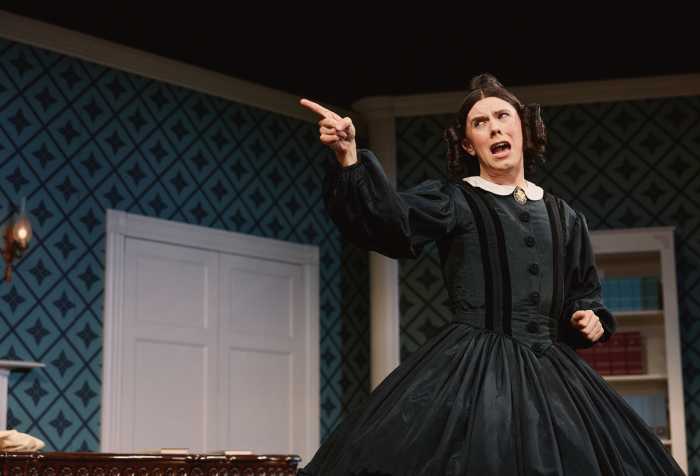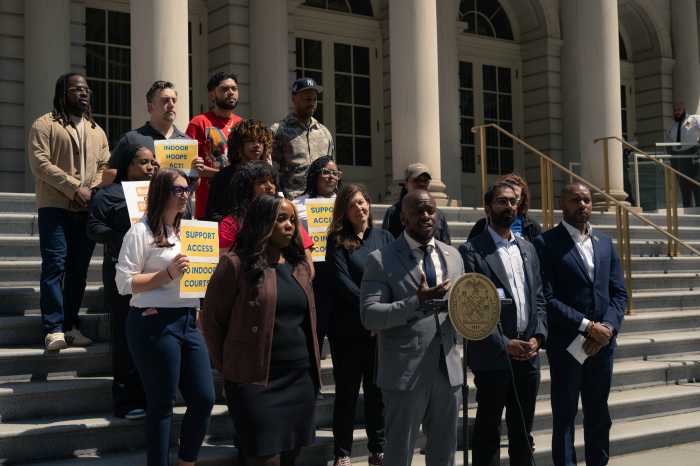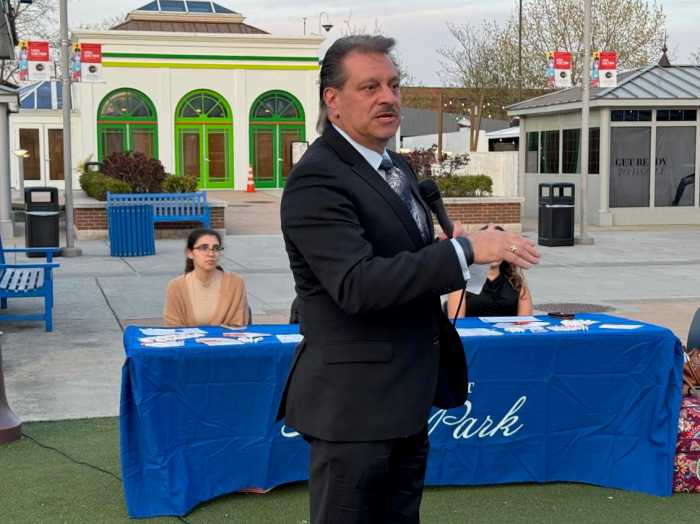‘Straight White Men’ runs at the Hayes Theater through Sept. 9. 240 W. 44th St., 2st.com.
“In case you were wondering, neither of us is a straight white man,” asserts 70-year-old author and transgender pioneer Kate Bornstein during a preshow speech at the top of Young Jean Lee’s “Straight White Men.” Joined by Native American performer Ty Defoe, the pair kicks off a freewheeling and thoughtful but underwhelming family comedy.
In 2014, Lee (an experimental playwright whose prior work includes a bizarre distortion of Shakespeare’s “King Lear”) directed “Straight White Men” herself at the Public Theater. Produced by Second Stage at the Hayes Theater, the play is now receiving a short run on Broadway in a new production directed by Tony winner Anna D. Shapiro (“August: Osage County”).
Regardless of what one may think of “Straight White Men” and its postmodern, often puzzling trappings, it marks a major historic milestone as the first play by an Asian-American woman to be produced on Broadway.
Billed as “Person in Charge 1,” Bornstein explains to the audience in a friendly manner that “we’re gonna try to find some understanding for straight white men” because “that’s what we wish everyone would do for us.”
A silver shimmer curtain then disappears to reveal a middle-class, suburban family room — literally surrounded by a picture frame — where Ed (Stephen Payne, who took over the role after both Tom Skerritt and Denis Arndt left the production) is spending Christmas with his adult sons Jake (Josh Charles, “The Good Wife”), Drew (Armie Hammer, “Call Me By Your Name”) and Matt (Paul Schneider, “Parks and Recreation”).
The play marks the Broadway debut of each actor except for Payne, who has three prior credits as an understudy.
There is no character development or plot, besides a handful of guys sitting around on a couch. As their father looks on, the three young men play games (including a retooled version of “Monopoly” created by their mother), joke around (breaking into a parody version of the title song of “Oklahoma!”) and strut around in matching pajamas.
The group also considers Matt’s failure to take charge of his life, compared with Jake and Drew’s professional successes, which leads to a shallow discussion of class privilege and whether to “reinforce the status quo” or “fight the system.”
Bornstein and Defoe — who win over the crowd during brief, self-deprecating remarks — rematerialize during scene changes, quietly standing around as stagehands rearrange props.


































